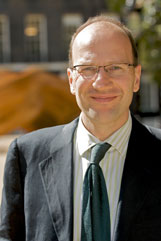A Quote by Maurice Maeterlinck
Our reason may prove what it will: our reason is only a feeble ray that has issued from Nature.
Related Quotes
And when someone suggests you believe in a proposition, you must first examine it to see whether it is acceptable, because our reason was created by God, and whatever pleases our reason can but please divine reason, of which, for that matter, we know only what we infer from the processes of our own reason by analogy and often by negation.
You see, gentlemen, reason is an excellent thing, there’s no disputing that, but reason is nothing but reason and satisfies only the rational side of man’s nature, while will is a manifestation of the whole life, that is, of the whole human life including reason and all the impulses. And although our life, in this manifestation of it, is often worthless, yet it is life and not simply extracting square roots.
Our future may lie beyond our vision, but it is not completely beyond our control. It is the shaping impulse of America that neither fate nor nature nor the irresistible tides of history, but the work of our own hands, matched to reason and principle, that will determine our destiny. There is pride in that, even arrogance, but there is also experience and truth. In any event, it is the only way we can live.
We have more than two options. A critique of reason does not have to be a call for the return of superstition and arbitrary power. Our problems do not lie with reason itself but with our obsessive treatment of reason as an absolute value. Certainly it is one of our qualities, but it functions positively only when balanced and limited by the others.
There are two excesses: to exclude reason, to admit nothing but reason. The supreme achievement of reason is to realise that there is a limit to reason. Reason's last step is the recognition that there are an infinite number of things which are beyond it. It is merely feeble if it does not go as far as to realise that.
The only sovereign I can allow to rule me is reason. The first law of reason is this: what exists exists; what is is. From this irreducible, bedrock principle, all knowledge is built. This is the foundation from which life is embraced. Reason is a choice. Wishes and whims are not facts, nor are they a means to discovering them. Reason is our only way of grasping reality–it is our basic tool of survival. We are free to evade the effort of thinking, to reject reason, but we are not free to avoid the penalty of the abyss we refuse to see." -Richard
I also came to see that liberalism's superficial optimism concerning human nature caused it to overlook the fact that reason is darkened by sin. The more I thought about human nature the more I saw how our tragic inclination for sin causes us to use our minds to rationalize our actions. Liberalism failed to see that reason by itself is little more than an instrument to justify man's defensive ways of thinking. Reason, devoid of the purifying power of faith, can never free itself from distortions and rationalizations.
Our life as consumers seems light years away from that of our grandparents. But you don't change human nature. Optimism, for me, is the belief that we can spread the opportunity for everyone to be fully human. Sustainability, like music, is an impulse to make sense of the world around us. It is core to our humanity. If you only like one composer, or think all the best music has already been written, you have reason for pessimism. If not, it is within us to have good reason for hope



































